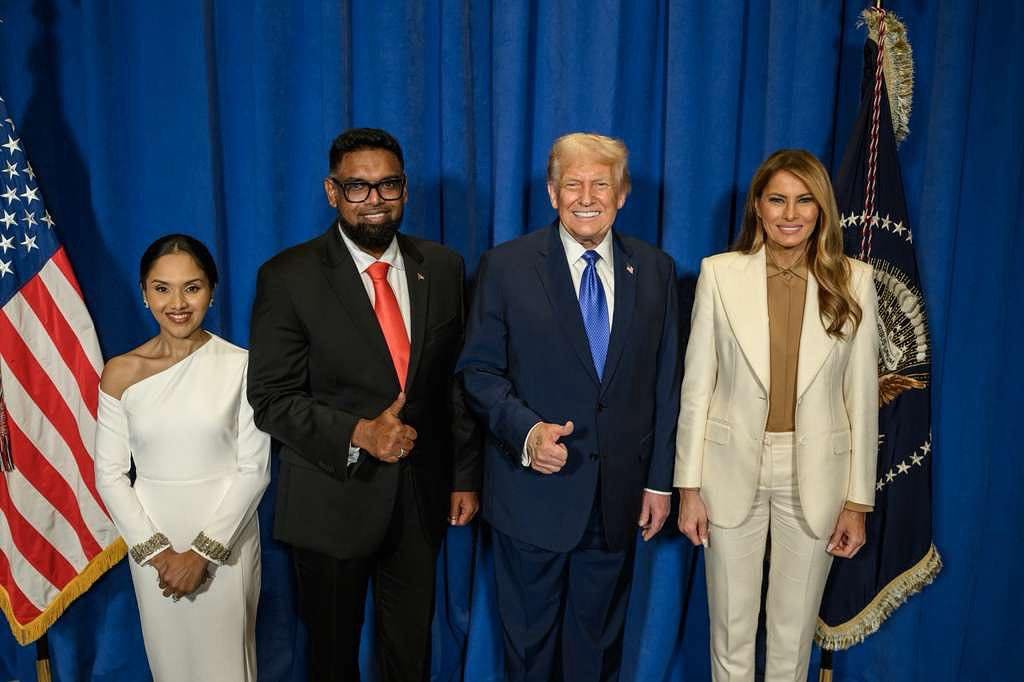The new Guyana government has decided to start improving Guyana’s economic growth immediately. Three leaders, the President, the Prime Minister, and the Vice President, are committed to raising the standard of living for all Guyanese.
Small and medium-sized enterprises (SMEs) are poised to play a central role in the growth of Guyana’s agro-processing industry, with President Dr. Irfaan Ali reaffirming his government’s commitment to supporting them through financing, partnerships, and access to modern technology.
Speaking at a recent press conference, President Ali outlined a strategy that links local businesses with international partners, advancing Guyana’s vision of becoming a food hub in the Caribbean Community region.
“SMEs have an important role to play in agro-processing. That is why we are now working with those who have the technology and the investment to co-invest with our local SMEs, ensuring that we maximize their potential while providing the fastest access to technology, financing, and technical support to help them grow their businesses and be part of this transformation,” he said.
The President acknowledged that technology remains a challenge but emphasized that collaborating with investors who already have advanced expertise will help Guyana cut delays and speed up development.
So, we can either sit back and wait forever, or we can go and bring those with the technology—those who have achieved success—to join us, so that we reduce the lag time and move forward more quickly.
I believe that is the best approach, and that’s why the private sector is involved in this,” he added.
Growing Investor Confidence
Guyana’s agro-processing sector is growing quickly, with international investors—especially from the Middle East and the U.S.—showing strong interest in manufacturing and adding value to food products.
President Ali emphasized that Guyana has one of the most competitive investment environments in the region. To enhance this, the government is establishing special development zones in Regions Nine, Six, and 10.
“I think we have the best incentive regime for manufacturing; a very competitive regime, both on the fiscal side and in support of infrastructure; support that the government is providing, building out the infrastructure to support manufacturing. So, we are creating different hubs. Some of these hubs will be tax-free zones to encourage investment,” the President explained.
The Enmore and Wales Development Zones are among the earliest projects of this kind, created to attract new investments and strengthen local industries.
Building a Regional Food Hub
A major highlight of the President’s announcement was the development of a large agro-business hub. This initiative, he said, will not only improve Guyana’s food security and innovation but also serve as a platform for greater regional self-sufficiency.
Earlier this year, Guyana signed a Memorandum of Understanding with U.S.-based Blumberg Grain and Logistics to build a modern food hub at Yarrowkabra on the Soesdyke-Linden Highway. Phase One of the project, valued at $187 million, started in 2023.
The hub will feature advanced manufacturing and processing facilities, significantly reduce post-harvest losses to as low as 5 percent, and boost Guyana’s ability to export within CARICOM, South America, and beyond.
Mega Farms to Boost Production
To enhance food security, the government intends to collaborate with large-scale mega farms.
“We’re examining 100,000 hectares of land to convert into large-scale mega farms, focusing on corn, soybean, coconut, spices, and cocoa. All of this we have been able to make progress on,” President Ali stated.
Transforming Agriculture
The agriculture sector has already experienced rapid transformation through diversification and modernization, with substantial government support helping farmers add value to crops, livestock, dairy, and fisheries.
By 2024, Guyana’s food production reached 1.26 million metric tons, up from 899,000 metric tons in 2022. Record rice yields and significant growth in shrimp, prawns, corn, and soy production drove this increase.
These achievements align with the Caribbean Community’s Vision 2030 Agri-Food Systems Agenda, which prioritizes food security and sustainable production.
A recent study in Nature Food further highlighted Guyana’s unique status. Among 186 countries, it was the only nation found to be completely self-sufficient in food, able to meet its population’s dietary needs without relying on imports.
This distinction highlights Guyana’s dual role as both a regional leader and a global exemplar of sustainable food security.





